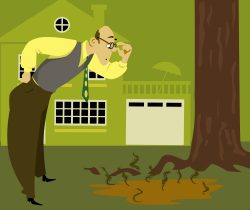What To Do When Your Septic Backs Up

Recognizing the Signs of a Septic Backup
Before we dive into what to do when a septic backup occurs, let’s first understand how to recognize the signs of trouble:
- Slow Drains: Sluggish or slow drainage in sinks, showers, or toilets is often an early warning sign of a septic problem.
- Foul Odors: Unpleasant odors coming from drains, your yard, or near the septic tank can indicate a backup.
- Gurgling Sounds: If you hear gurgling noises from your drains or toilets when they are not in use, it could be a sign of an issue.
- Pooling Water: Standing water in your yard or around the septic tank area is a clear indication of a problem.
- Toilet Backups: Frequent toilet backups, especially in multiple bathrooms, are a significant red flag.
If you notice any of these signs, it’s vital to address the issue promptly to prevent a full-blown septic backup.
Immediate Steps When a Backup Occurs
When you realize you have a septic backup, taking immediate action can help prevent further damage and reduce the cleanup process:
- Stop Water Usage: The first and most crucial step is to stop using water in your home. This includes not flushing toilets, running faucets, using appliances that require water (like the dishwasher or washing machine), or taking showers. Excessive water usage can exacerbate the backup.
- Avoid the Septic Area: Stay away from the area around the septic tank and drain field. Walking on or driving over these areas can further compact the soil and potentially damage pipes or the tank.
- Locate the Septic Tank: If you know where your septic tank is located, check to see if there is standing water near it or if any alarms are activated (if you have a septic system alarm). If you’re uncertain about the location or the state of the tank, it’s best to leave the inspection to a professional.
- Call a Septic Professional: The next step is to contact a certified septic professional. They have the knowledge, experience, and equipment to assess the situation and perform the necessary repairs. Attempting to resolve the problem yourself can often make things worse.
Avoid These Common Mistakes
During a septic backup, it’s crucial to avoid some common mistakes that homeowners often make:
- Don’t Use Chemicals: Avoid using chemical drain cleaners to try to clear the blockage. These chemicals can be harmful to your septic system and the environment.
- Don’t Pump the Septic Tank Yourself: Septic tank pumping should be performed by professionals who understand the process and can do it safely. Attempting to pump the tank yourself can result in injury or damage to the tank.
- Don’t Ignore the Problem: Ignoring a septic backup won’t make it go away. It will only lead to further damage and more costly repairs in the long run. Address the issue promptly.
Working with a Septic Professional
Once you’ve called a septic professional, they will assess the situation and take the necessary steps to resolve the backup. Here’s what you can expect:
- Inspection: The septic professional will inspect the septic tank, drain field, and distribution box (if applicable) to identify the source of the problem.
- Clearing Blockages: If the blockage is within the drain lines, the professional may use specialized equipment to clear it. If the blockage is severe or deep within the system, excavation may be necessary.
- Septic Tank Pumping: If the backup is due to a full septic tank, the technician will pump it to relieve the pressure and restore proper flow.
- Repairs and Maintenance: Depending on the cause of the backup, the septic professional may recommend repairs or maintenance to prevent future issues. This could involve fixing damaged pipes, replacing the drain field, or installing an effluent filter.
- Preventive Measures: The technician may also provide you with advice on how to prevent future backups. This could include guidelines for proper usage and maintenance of your septic system.
Preventing Future Septic Backups
Once the immediate issue is resolved, it’s essential to take steps to prevent future septic backups. Here are some preventive measures:
- Regular Pumping: Schedule routine septic tank pumping every 3 to 5 years, or as recommended by a professional.
- Water Conservation: Use water-saving fixtures, and be mindful of water usage to avoid overloading your septic system.
- Proper Disposal: Only flush and drain items that are septic-safe. Avoid flushing non-biodegradable items, chemicals, and excessive food waste.
- Regular Inspections: Have your septic system inspected regularly by a professional to catch and address issues before they lead to a backup.
- Know Your System: Understand the layout and components of your septic system so you can monitor it for signs of trouble.
Summary
A septic backup can be a stressful and messy situation, but knowing how to respond and when to call a professional is essential. By acting quickly and taking preventive measures, you can minimize the damage and reduce the likelihood of future backups!
Got Questions About Your Septic System? Let Us Help!
The Macken family has been serving western New York since 1968. Our company specializes in the installation, repair, and maintenance of septic systems. We can also help you deal with your restaurant grease trap. We have acquired a decade’s worth of experience and know all the ins and outs of keeping your septic system worry-free. The key to a well-functioning septic system is regular maintenance. While it is easy to be lulled into a false sense of security, make no mistake: eventually, a neglected septic system will require attention. So be proactive and give us a call today before you have a stinky situation to deal with.
Categorised in: Septic Problems, Septic Services, Septic System Inspection, Septic Systems
This post was written by admin
